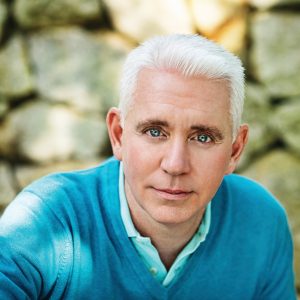Faith Seeker
By Father Edward L. Beck
One of the most common phrases that I hear from people is, I’m not religious, but I’m spiritual. Usually it means: I don’t go to church, temple or mosque, but I believe in a higher power and in an ineffable dimension to life that goes beyond the physical. Often it also means: I want to keep all of my options open.
Spirituality is an amorphous topic. It taps into a nebulous feeling that there is more to reality than our five senses can ascertain. It is about our intuition that the most significant aspects of life are about the “more,” that which has nothing to do with the narrow parameters of the physical world. Beauty, wonder, desire, imagination, love—these exist in the realm of the spiritual world. These are what, deep down, we long to give our lives.
There are, however, many obstacles to the pursuit of the spiritual, beginning with the “three Ps”: power, prestige and possessions. Egocentric forces in our natural world labor to convince us that true happiness resides in the accumulation of these instead.
Advertisements, pedagogical priorities in schools, job qualifications, and even parental admonitions send the not-so-subtle message that our most significant goals and accomplishments lie in control, status and wealth. We are what we do, and how well we do it.
Spiritual traditions suggest, however, that this is all a ruse. They maintain that what is most true about us has nothing to do with any of those misguided priorities. We are created for love and intended for “the more.” Our life goal should be to lean into these truths while resisting the gravitational pull of that which fails to satisfy.
Some would say this is an unrealistic goal given the current state of our acquisitive society. If you take your eye off the “three Ps,” then you will be left behind to wallow in mediocrity, or even worse, in abject poverty. The experience of many spiritual seekers begs to differ.
The parable of the rich young man in the Gospel of Matthew (19:16-30) is revelatory of the goals and pitfalls of the spiritual seeker. The rich young man’s question to Jesus is a straightforward one: “Teacher, what good must I do to gain eternal life?” Is that not the primary question of us all? What must we do to possess happiness that cannot be taken away?
After reiterating the teachings of the Judaic tradition, Jesus delivers his round-ending left punch: “If you wish to be perfect [happy], go, sell what you have and give it to the poor, and you will have treasure in heaven.” The Gospel writer tells us that the man walked away sad because he had many possessions.
This parable is not about wealth or possessions. It is about an inordinate attachment to them. The point is that inordinate attachment to the ephemeral—whatever it is—will always end in disappointment and sadness. Buddhism is clear in its teaching that the root of all suffering is attachment. The Buddha says suffering is “the attachment to the desire to have (craving) and the desire not to have (aversion).”
The task of the spiritual life is to detach from that which fails to satisfy and to spend time cultivating our desire for “the more,” believing that its pursuit is not only noble but life-giving. If you want to be happy, then seek that which can afford you that state of being. Clear and simple.
Religious traditions aid in this pursuit by connecting us back to eternal truths that have withstood the test of time. The very word religion is from the Latin word religare, “to be tied back to, to bind.” To be religious is therefore not in opposition with (or even in juxtaposition to) being spiritual. They go together like hand and glove, both aiding us in keeping all of our worthwhile options open.





